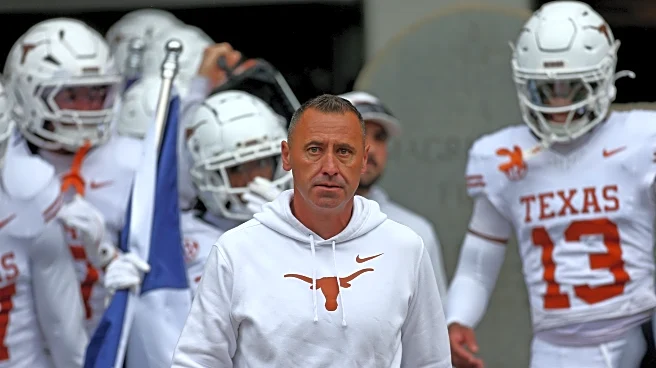By the end of September, the No. 7 Ole Miss Rebels had already played three SEC opponents, affording midseason conference reprieves with a home matchup against the Washington State Cougars after a bye
week in October and November game in Oxford against The Citadel Bulldogs.
When the No. 5 Georgia Bulldogs and the No. 4 Alabama Crimson Tide faced off in Athens in late September, both teams were coming off a bye week with the Tide looming as the second conference opponent for the Bulldogs.
The Rebels and Bulldogs are two of the nine SEC teams that played a conference game by Week 2, affording the opportunity to play late-season games against non-conference opponents — after hosting the Texas this weekend, Georgia closes the season with a home game against Charlotte and a neutral-site rivalry game against Georgia Tech.
In total, 10 of the 16 SEC teams are playing non-conference games in November, although some are rivalry games.
The discrepancies in SEC scheduling, reduced to some extent in the future by a mandate to play a Power Four opponent in addition to the expanding nine-game conference slate, are a source of frustration for Texas head coach Steve Sarkisian, whose program was the only one in the SEC to play its conference opener in October — only three schools played their SEC opener the week before.
Combined with playing four games away from home that month, the Longhorns arguably faced the conference’s most difficult stretch of football setting aside any considerations of opponent quality.
On Thursday, Sarkisian addressed his level of comfort with a schedule that concludes with the road matchup against Georgia and home rivalry games against Arkansas and No. 3 Texas A&M.
“No, I’m not comfortable,” Sarkisian said. “I don’t think there’s enough continuity from a scheduling standpoint in the SEC and I understand with us being new to the conference and how schedules get set earlier, years in advance.”
Texas has at least one non-conference game per year scheduled through the 2033 season, including a home-and-home with Notre Dame in 2028 and 2029 that was scheduled last year and longer-standing contracts to play Michigan and Ohio State, the latter series originally scheduled in 2012 and with games pushed back from 2022 and 2023 to 2025 and 2026. The Michigan home-and-home series was set in 2014.
So although Sarkisian did not directly respond to whether he’s discussed changes in schedule with athletics director Chris Del Conte, the tenor of his remarks certainly suggested that he has, and there are opportunities within the existing non-conference to schedule a late-season game outside of SEC play, starting in 2027

“I just think there’s some distinct advantages that some people have or they spread out their non-conference games throughout the season, and they play non-conference games the second last game of the season, and we’re playing all of ours in the front end,” Sarkisian said. “They’re playing conference games earlier in the year when their team’s 100-percent healthy.”
Given the playoff implications inherent in so many SEC matchups, only magnified by the expanded field, the ability to play conference games at full health does objectively represent a distinct advantage.
In typical fashion, Sarkisian takes a pragmatic approach to the present while working behind the scenes to produce better outcomes for the future.
“I don’t love our schedule, but it’s our schedule, and so I do love it in the same breath, because it is what it is,” Sarkisian said. “You play the schedule, you play the hand you’re dealt, but I just don’t think there’s a lot of parity from a scheduling standpoint of who’s getting non-conference games when, and who’s getting what level of non-conference opponents, because of the impact that it has down the road when you start talking about the playoffs.”









